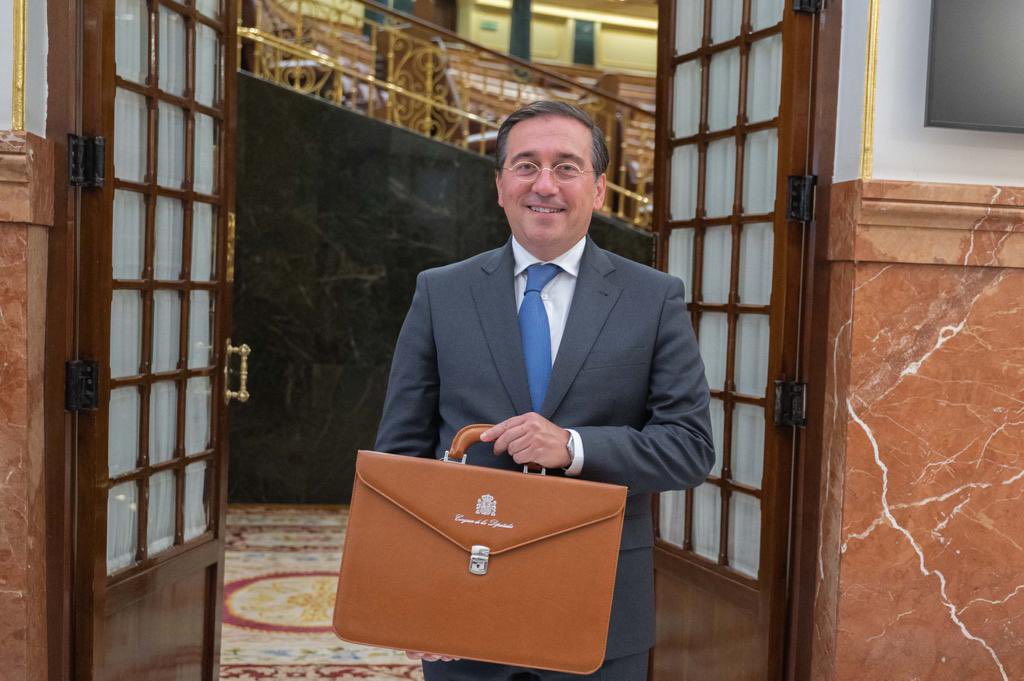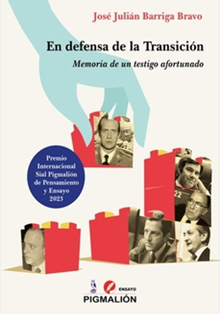Luis Ayllón
José Manuel Albares will continue to head the Ministry of Foreign Affairs in Pedro Sánchez’s new government, whose composition was announced yesterday and in which a fourth vice-president is created for the Minister of Finance, María Jesús Montero; and broad powers are conferred on Félix Bolaños, who adds the competences of Justice to his portfolio of the Presidency.
Finally, Sánchez has kept the same number of ministers -a total of 22 (12 women and 10 men)- as before, and has formed a Cabinet that he defined as follows, when presenting it to journalists: “It combines renewal with permanence, experience with youth. With a high political profile for a legislature with a high political profile. People capable of managing in order to reach agreements and explain them publicly”.
The Prime Minister is aware that it is not going to be an easy legislature and that it will be marked by the amnesty law, which he wants to push through in order to pay the bill to the Catalan pro-independence supporters for their support in the investiture session.
This is one of the reasons why Félix Bolaños, until now head of the Presidency and Relations with the Cortes, has become a sort of “super-minister” by also taking on the responsibilities of Justice. Bolaños thus brings together powers over the three branches of government – the Executive, the Legislative and the Judiciary – at a time when possible appeals from the courts against the amnesty law are on the horizon, the parliamentary processing of which is already underway.
In addition, the President of the Government has kept the three vice-presidents: Nadia Calviño, Yolanda Díaz and Teresa Ribera; and added a fourth: María Jesús Montero, who will also continue with her responsibility for the Treasury and who will be strengthened in the new Executive, after having been able to push through three General State Budgets in complicated circumstances during the previous legislature.
Calviño’s presence, however, may be temporary, if she achieves her goal of being elected president of the European Investment Bank in January. As the bet is not a sure thing, Sánchez has preferred to keep her in the Cabinet as first vice-president.
As for the Foreign Affairs portfolio, as expected, Sánchez has kept José Manuel Albares, who was put in charge of Spanish diplomacy in July 2021, replacing Arancha González Laya, after the crisis over the reception in Spain of the leader of the Polisario Front, Brahim Ghali.
The Prime Minister thus rewards Albares’ loyalty to his foreign policy approaches, including the controversial turnaround in his position on Western Sahara, in which he backed the autonomy plan for the territory proposed by Morocco and which provoked a diplomatic crisis with Algeria that lasted almost 20 months.
Albares, who has had a close personal relationship with Sánchez for many years, has also been responsible for taking to Europe the initiative of wanting to declare Catalan, Basque and Galician official languages, one of the demands of the pro-independence supporters, which, for the moment, Brussels has put on ice.
The minister will also have to deal with the resumption of negotiations between the European Commission and the United Kingdom on the future of Gibraltar after Brexit. Following the formation of new governments in both Spain and the Rock, it is foreseeable that contacts to reach an agreement will accelerate, with Spain having the final say on the matter.
Along with Albares, Fernando Grande-Marlaska will continue in their respective portfolios in the Interior, despite being considered “burnt out” in many sectors; Margarita Robles, in Defence; Luis Planas in Agriculture; and Diana Morant, Minister for Research, who will also take over Universities.
Pilar Alegría will also continue to head Education, adding Sport to her responsibilities, after the president decided to separate them from Culture. In addition, Alegría, who was the PSOE spokesperson, will now be the spokesperson for the Executive, replacing Isabel Rodríguez.
Isabel Rodríguez therefore leaves the post of spokesperson and also the portfolio of Territorial Administration, to take on another newly created portfolio: that of Housing and the Urban Agenda.
Víctor Ángel Torres, former president of the Canary Islands, will take over the portfolio of Territorial Administration and will head a ministry called Territorial Policy and Democratic Memory.
Another new addition is Jordi Hereu, former mayor of Barcelona (2006-2011) and current president of Hispasat, who will be Minister of Industry. Hereu, who will be responsible for Trade and Tourism in his Department, has spent the last ten years in the business world, and is the only PSC representative in the Government, following the departure of Miquel Iceta from Culture.
Another man of Sánchez’s full confidence also enters as a minister: Óscar Puente, former mayor of Valladolid, who will be the new Minister of Transport, and who was in charge of responding to Alberto Núñez Feijóo when he presented his candidacy for President of the Government.
José Luis Escrivá will become Minister of Digital Transformation, and the Social Security responsibilities will be headed by Elma Sáiz, who was Minister of Economy and Finance in the regional government of Navarre and is now a PSOE councillor on the Pamplona City Council. The departure of Saiz, who, with a moderate profile, was the Socialist candidate for mayor of the capital of Navarre and came third, could open the way for a motion of censure against the current UPN mayoress, Cristina Ibarrola. Bildu will be the one to promote it, in order to put Joseba Asirón in the mayor’s seat, with the support of the PSOE. Sáiz will be responsible for the transfer of Social Security powers to the Basque government, as agreed by Sánchez with the PNV.
For her part, Ana Redondo, who is very close to Óscar Puente and former PSOE training secretary in Valladolid, will be the Minister for Equality. With this appointment, the Equality portfolio passes to the PSOE sphere, consummating the departure of Irene Montero, the promoter of the controversial “Yes is yes” law, which Sánchez was forced to amend.
Along with Irene Montero, the other Podemos leader, Ione Belarra, leaves the government, losing her Social Rights portfolio. This confirms that the purple party will not obtain any of the ministries that would correspond to the Sumar quota, and opens up a scenario in which the five Podemos MPs may at some point make things difficult for Sánchez in Parliament.
Within the Sumar quota, on which Yolanda Díaz decides, at the head of Social Rights and Consumption will be one of the founders of Podemos, Pablo Bustinduy, who was spokesman for that group in the Foreign Affairs Committee and is the son of the former socialist minister Ángeles Amador. Bustinduy left politics after the split between Pablo Iglesias and Íñigo Errejón, renouncing to be head of the list in the 2019 European elections, and returned to form part of Yolanda Díaz’s campaign team.
In addition, Sumar’s spokesperson, Ernest Urtasun, a career diplomat, former member of the European Parliament and one of Díaz’s main supporters in her campaign, is the new Minister of Culture.
Meanwhile, Mónica García, a doctor by profession and a regional MP for Más Madrid in the Madrid Assembly, where she has had numerous clashes with the president, Isabel Díaz Ayuso, will be in charge of the Health portfolio. It cannot be ruled out that there will be new clashes between the now minister and Ayuso because public health has been a battle horse of the left against the president, and Mónica García has always been at the forefront.
Finally, the MEP and federal spokesperson for Izquierda Unida, Sira Rego, will lead a new Ministry for Children and Youth. Her Palestinian ancestry, through her father, has caused discomfort in the Israeli media, where it is recalled that on the day of the attack by Hamas terrorists on 7 October, she issued a message in which, without making any reference to it, she indicated that “Palestine has the right to resist after decades of occupation, genocide and exile”.







